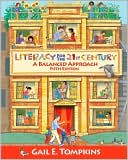Category Books
- Fiction Books & Literature
- Graphic Novels
- Horror
- Mystery & Crime
- Poetry
- Romance Books
- Science Fiction & Fantasy
- Thrillers
- Westerns
- Ages 0-2
- Ages 3-5
- Ages 6-8
- Ages 9-12
- Teens
- Children's Books
- African Americans
- Antiques & Collectibles
- Art, Architecture & Photography
- Bibles & Bible Studies
- Biography
- Business Books
- Christianity
- Computer Books & Technology Books
- Cookbooks, Food & Wine
- Crafts & Hobbies Books
- Education & Teaching
- Engineering
- Entertainment
- Foreign Languages
- Game Books
- Gay & Lesbian
- Health Books, Diet & Fitness Books
- History
- Home & Garden
- Humor Books
- Judaism & Judaica
- Law
- Medical Books
- New Age & Spirituality
- Nonfiction
- Parenting & Family
- Pets
- Philosophy
- Political Books & Current Events Books
- Psychology & Psychotherapy
- Reference
- Religion Books
- Science & Nature
- Self Improvement
- Sex & Relationships
- Social Sciences
- Sports & Adventure
- Study Guides & Test Prep
- Travel
- True Crime
- Weddings
- Women's Studies
Literacy for the 21st Century: A Balanced Approach » (5th Edition)

Authors: Gail E. Tompkins
ISBN-13: 9780135028926, ISBN-10: 0135028922
Format: Paperback
Publisher: Prentice Hall
Date Published: January 2009
Edition: 5th Edition
Author Biography: Gail E. Tompkins
Gail E. Tompkins is Professor Emerita at California State Unversity, Fresno, and she continues to direct the San Joaquin Valley Writing Project. She regularly works with teachers in their kindergarten through eighth-grade classrooms and leads staff development programs on reading, language arts, and writing. In 1998 Dr. Tompkins was inducted into the California Reading Association's Reading Hall of Fame in recognition of her publication and other accomplishments in the field of reading, and recently she was awarded the prestigious Provost's Award for Excellence in Teaching at California's State University, Fresno.
Book Synopsis
What makes Literacy for the 21st Century the most valuable and relevant literacy text on the market?
Authenticity
Bringing in the voices of K-8 teachers and students, Literacy for the 21st Century will help you envision the opportunities and challenges that await you when teaching reading and writing. You will:
- View teachers in action through the thrilling new DVD created to help you see literacy strategies in the context of classroom teaching.
- Envision today’s classrooms through chapter opening vignettes that share stories from successful literacy classrooms.
- Observe literacy learning and assessment in the student work samples that appear throughout chapters, helping you recognize the ways students develop as readers and writers.
Balance
Literacy for the 21st Century strengthens and clarifies the ways to balance skills and strategies instruction with authentic reading and writing experiences. Careful study of this text will allow you to:
- Understand literacy instruction in terms of four foundational instructional approaches: basal reading programs, literature focus units, literature circles, and reading and writing workshop.
- Recognize the ten Components of a Balanced Literacy Program through new chapter features, clarifying the elements to balance and the ways to do it successfully.
Classroom Practice
Loaded with ideas to take right into the classroom, Literacy for the 21st Century truly prepares you to differentiate your teaching and meet the needs of all students. Special features include:
- Nurturing English Learnersfeatures thatdemonstrate how chapter content must be reconsidered in terms of the English learner.
- Scaffolding Struggling Readers features, providing pivotal information to help students who struggle make real progress in developing literacy competency.
- Minilessons that offerclear, concise skill and strategy instruction, ready for you to take right into your classrooms!
- A Compendium of Instructional Procedures composed of dozens of step-by-step instructional methods designed to get you up and running quickly in your own literacy classroom.
Table of Contents
| Pt. 1 | What is a balanced approach to literacy instruction? | 1 |
| 1 | Becoming an effective teacher of reading | 4 |
| 2 | Teaching the reading and writing processes | 42 |
| Pt. 2 | How do children learn to read and write? | 75 |
| 3 | Working with young readers and writers | 78 |
| 4 | Cracking the alphabetic code | 110 |
| 5 | Developing fluent readers and writers | 150 |
| 6 | Expanding students' knowledge of words | 184 |
| 7 | Facilitating students' comprehension : reader factors | 216 |
| 8 | Facilitating students' comprehension : text factors | 250 |
| 9 | Assessing students' literacy development | 292 |
| Pt. 3 | How do teachers organize literacy instruction? | 329 |
| 10 | Teaching with basal reading textbooks | 332 |
| 11 | Teaching literature focus units | 354 |
| 12 | Orchestrating literature circles | 380 |
| 13 | Implementing reading and writing workshop | 400 |
| 14 | Reading and writing in the content areas | 426 |
| Pt. 4 | Compendium of instructional procedures | 467 |
Subjects
 Educational Levels & Settings
Educational Levels & Settings  Elementary Education
Elementary EducationEducation & Teaching
 Literacy
Literacy  Literacy
LiteracyEducation & Teaching
 Teaching Reading & Language
Teaching Reading & Language  Teaching - Language Arts
Teaching - Language ArtsEducation & Teaching
 Teaching Reading & Language
Teaching Reading & Language  Teaching - Reading
Teaching - ReadingEducation & Teaching
 Teaching & Teacher Training
Teaching & Teacher Training  Teaching - Literature
Teaching - LiteratureNonfiction
 All Nonfiction
All Nonfiction  Education - General & Miscellaneous
Education - General & Miscellaneous
